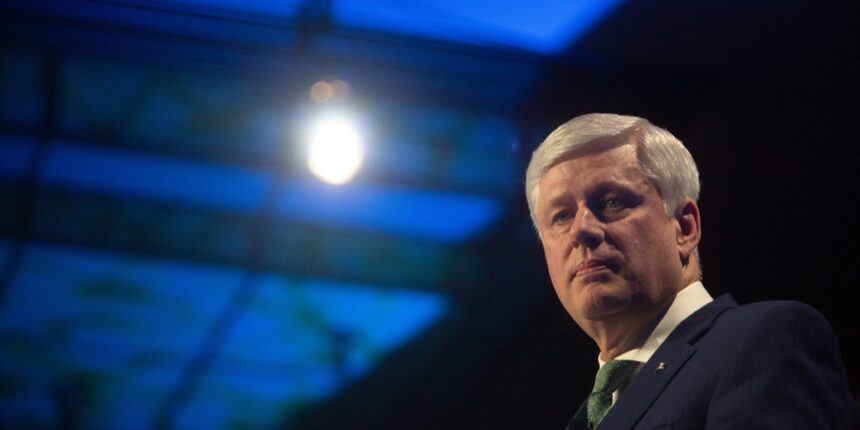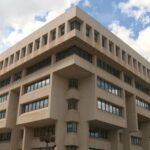Former Prime Minister Stephen Harper and Saskatchewan Premier Scott Moe are set to host a delegation of influential U.S. congressional representatives in Saskatoon next month, marking an unusual direct engagement between American lawmakers and Canadian provincial leadership.
The closed-door meetings, scheduled for August 15-17, will focus on energy security, agricultural trade, and border management, according to sources familiar with the agenda. This gathering represents one of the most significant cross-border political exchanges to occur outside Ottawa in recent years.
“Saskatchewan has always been a critical link in North America’s resource corridor,” Premier Moe told me during a phone interview yesterday. “These discussions will strengthen our position as a reliable energy partner while addressing shared challenges on both sides of the border.”
The U.S. delegation reportedly includes six members of Congress, evenly split between Republicans and Democrats, with representation from key committees overseeing trade, energy, and agriculture. Sources close to the planning indicate that Republican Senator John Hoeven of North Dakota, who chairs the Senate Energy Committee, will likely head the American contingent.
Harper’s involvement signals the continued influence of the former Conservative leader in cross-border relations. Since leaving office in 2015, Harper has maintained connections with Republican circles through his consulting firm Harper & Associates, which specializes in international business and political strategy.
The timing of these talks comes as both countries grapple with shifting energy landscapes. Saskatchewan’s oil sector has faced headwinds from federal carbon pricing policies, while American energy producers navigate their own regulatory pressures under the Biden administration.
The meetings reflect a growing trend of sub-national diplomacy, where provinces and states increasingly pursue their own international relationships, sometimes operating parallel to federal foreign policy frameworks.
“What we’re seeing is a form of paradiplomacy,” explains Dr. Jenna Wilson of the University of Saskatchewan’s Institute for Public Policy. “When provinces feel their economic interests aren’t adequately represented by their national capitals, they create their own channels of international engagement.”
This summit raises questions about protocol and federal oversight. Foreign Affairs Minister Mélanie Joly’s office confirmed they were “informed of the meeting” but would not have official representation at the talks. This arrangement has raised eyebrows among some diplomatic observers.
“Typically, when foreign lawmakers visit Canada, Global Affairs coordinates the engagement,” noted Christopher Sands, director of the Canada Institute at the Wilson Center in Washington. “Premier Moe appears to be creating an alternative channel with Harper’s assistance, which could either complement or complicate Ottawa’s approach to Washington.”
For Saskatoon, the meeting represents an economic opportunity beyond the immediate policy discussions. Local businesses anticipate roughly $2.3 million in economic impact from the three-day summit, according to Saskatoon Chamber of Commerce estimates.
The province has experienced four consecutive quarters of economic growth despite national headwinds. Saskatchewan’s unemployment rate sits at 5.7%, below the national average, bolstered by strong agricultural exports and resilient resource sectors.
Behind the high-level discussions lie practical concerns for both countries. Saskatchewan farmers have complained about inconsistent border regulations affecting agricultural equipment movement, while energy producers seek predictability in pipeline access and cross-border electricity transmission.
“We need regulatory certainty,” explains James Thornton, who farms 4,000 acres near Rosetown. “When I order parts from North Dakota, sometimes they cross in hours, sometimes weeks. When you’re racing against weather during harvest, that inconsistency costs real money.”
The meeting agenda also reportedly includes discussions on critical minerals essential for battery manufacturing and renewable technologies. Saskatchewan holds significant deposits of uranium, potash, and rare earth elements increasingly important to both countries’ industrial strategies.
Premier Moe has been a vocal critic of federal energy policies, particularly the carbon tax. During a recent town hall in Regina, he told a packed community center: “We don’t need Ottawa telling us how to balance environmental stewardship with economic growth. Saskatchewan has been doing both successfully for generations.”
This gathering mirrors efforts in other provinces to develop independent relationships with American counterparts. Alberta Premier Danielle Smith has similarly courted U.S. energy investors, while Ontario and Quebec maintain trade offices in several American cities.
What makes this summit unusual is Harper’s presence. As a former G7 leader with established Washington connections, his participation elevates the gathering beyond typical provincial outreach.
“Harper brings gravitas and rolodex access that Moe simply doesn’t have on his own,” observes Melissa Chen, a political analyst with Prairie Political Consultants. “It’s like having a former president showing up at your state governor’s meeting – it immediately commands more attention.”
The delegation will tour Saskatchewan’s Boundary Dam carbon capture facility, North America’s first commercial-scale carbon capture project at a coal-fired power plant. Despite mixed operational results since its 2014 launch, the facility represents the type of technological compromise between fossil fuel use and emissions reduction that appeals to moderate legislators from both countries.
The meetings will conclude with a public lecture at the University of Saskatchewan, though the speaker has not yet been announced. The university’s president confirmed the event but declined to specify which dignitary would deliver the address.
As Canadian provincial leaders increasingly develop their own diplomatic channels, these Saskatoon talks may signal a shift in how cross-border policy is shaped – from the ground up rather than from capital to capital. Whether this approach strengthens or fragments Canada’s international voice remains an open question worth watching closely.






